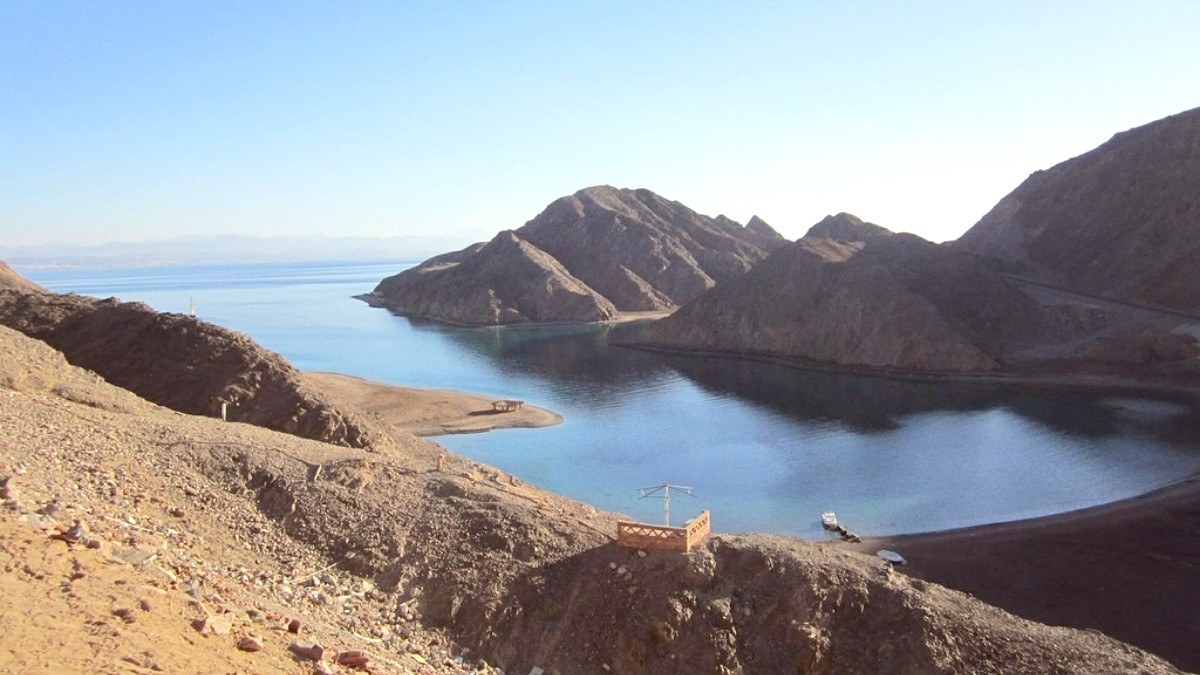
Sinai, Egypt
Dahab offers a compelling snapshot of Red Sea life, distinct from its larger neighbors. It moves at a slower pace, inviting visitors to shed fast-paced routines and embrace a different rhythm. The core appeal of Dahab lies in its underwater world. It is a premier global destination for diving and freediving, with sites like the Blue Hole and Canyon drawing enthusiasts from every corner of the world. Even snorkelers find themselves surrounded by an explosion of marine colors just meters from shore. Beyond the water, the Sinai desert presents another realm for exploration. Jeep safaris, camel treks, and stargazing dinners under vast, clear skies connect visitors with Bedouin traditions and the serene power of the wilderness.
Dahab occupies a distinct place on the Gulf of Aqaba, a northeastern arm of the Red Sea. Its location is special, nestled between the stark, ancient mountains of the Sinai desert and the crystal-clear waters of the Red Sea. To the west, the rugged peaks of the Sinai range provide a dramatic backdrop, inviting desert excursions and offering cool evenings.
The town itself stretches along the coastline, with its main tourist promenade directly facing the sea. The nearby Bedouin village of Assalah lies slightly inland, offering a glimpse into local life away from the tourist hub. Further north and south, the coastline extends into protected areas, preserving the fragile marine ecosystem. Water currents here are generally calm, contributing to excellent visibility for underwater activities. The deep waters of the Gulf of Aqaba, plunging thousands of meters, also bring nutrient-rich currents, supporting the diverse marine life that makes Dahab a diving paradise. The desert's proximity means dry air, even during warmer months, and dramatic temperature drops after sunset.
Dahab's history traces back to its origins as a small Bedouin fishing village. The name "Dahab" means "gold" in Arabic, possibly referring to the golden sands of its beaches, or perhaps the golden hue of the mountains at sunset. For centuries, the local Bedouin tribes, specifically the Muzayna, have called this area home, living a nomadic or semi-nomadic life tied to the rhythms of the desert and the sea. Their deep knowledge of the land and its resources shaped the early settlement.
In the 1980s and 1990s, Dahab began its transformation. Its pristine reefs and relaxed vibe attracted independent travelers, backpackers, and a growing community of divers. This gentle tourism boom saw the development of simple camps and guesthouses, often run by Bedouin families, alongside new dive centers. Unlike the large, purpose-built resorts elsewhere in Sinai, Dahab retained its organic growth, preserving much of its original character. The town did not lose its Bedouin soul, but rather integrated new arrivals into its way of life. This blending of cultures—traditional Bedouin hospitality with an international, free-spirited community—defines Dahab today. It is a place where ancient traditions meet modern adventure, all under the watchful eye of the Sinai mountains.
A contrasting rhythm to faster-paced routines.
Premier global destination for diving and freediving.
Jeep safaris, camel treks, stargazing under clear skies.
Social heart with waterfront restaurants and cafes.
Ranges from simple Bedouin camps to comfortable guesthouses.
Dahab's main promenade, Mashraba, forms the social heart. Here, waterfront restaurants, laid-back cafes, and shisha lounges invite long, relaxed evenings. The atmosphere feels genuine and welcoming, fostering interactions between locals and travelers. Accommodation options range from simple Bedouin camps to comfortable guesthouses and a few larger resorts, catering to various budgets. Food choices abound, with fresh seafood a particular highlight.
Dahab is a place that sees many return visitors. Many travelers arrive for a few days and extend their stay for weeks, drawn by the easygoing lifestyle and the endless opportunities for adventure and relaxation.
Its unique identity, shaped by its Bedouin heritage and a global community of sea and desert lovers, sets it apart as a true jewel of the Red Sea.
This guide helps you plan your journey to Dahab, ensuring you experience its natural beauty, rich culture, and welcoming spirit. Look forward to a trip where every moment encourages relaxation and discovery.
Dahab is widely considered a very safe destination for tourists. It has a low crime rate, and the atmosphere feels relaxed and welcoming. Like any tourist area, isolated incidents of petty theft can occur in crowded areas, though they are rare. Standard precautions include keeping valuables secure and not displaying large amounts of cash. While Dahab is more relaxed than larger Egyptian cities, solo female travelers might still experience some unwanted attention. Politely but firmly ignore or dismiss unwanted advances. Be aware of potential scams related to taxi fares (always agree on a price beforehand) or inflated prices for goods in markets (bargain respectfully).
The Sinai Peninsula has seen security incidents in its northern parts in the past. South Sinai, where Dahab is located, has been largely stable and features a strong security presence, especially on main roads and around tourist areas. Always consult travel advisories from your local government.
Dahab is a very safe destination for tourists with a low crime rate and welcoming atmosphere.
Keep valuables secure and negotiate prices. Solo female travelers may experience some unwanted attention.
South Sinai features a strong security presence on main roads and around tourist areas.
Dahab is more relaxed than other parts of Egypt due to its tourist and expat community. However, Egypt remains a conservative Muslim country, and showing respect for local customs holds value.